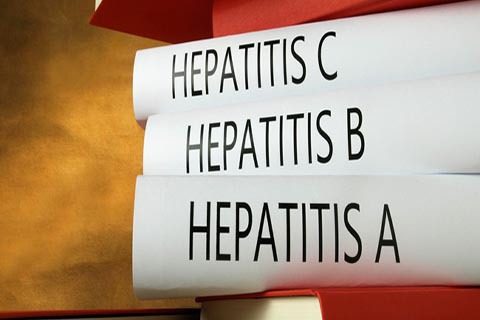 Despite evidence suggesting that Hepatitis-C infection is on rise in many parts of Jammu and Kashmir, the Health authorities in the State continue to test blood samples through “less-effective but cheaper technologies”, thus risking lives of hundreds of patients while allowing spread of the disease.
Despite evidence suggesting that Hepatitis-C infection is on rise in many parts of Jammu and Kashmir, the Health authorities in the State continue to test blood samples through “less-effective but cheaper technologies”, thus risking lives of hundreds of patients while allowing spread of the disease.
Official data points to an increasing incidence of Hepatitis B and C infections— commonly spread through blood—in the Valley.
The Kashmir Centre of Integrated Disease Surveillance Program—in its Activity Report for 2015—states that 262 cases of Hepatitis (both B and C) were reported from Kashmir division. It also details four “major outbreaks” of the diseases in the surveillance period. However, many doctors believe these figures are “misleading.”
“There is a stigma attached with diseases like Hepatitis. Then there is no effective awareness campaign and the problem is coupled with inadequate testing facilities,” a senior faculty member at SMHS Hospital here said.
However, in spite of growing concern over “spread” of this disease, the measures taken for its control are minimal. Blood samples are tested through ELISA 3 technique, which, as according to experts, has a higher probability of giving a false negative than ELISA 4 technique.
“As a result, blood samples of suspected cases and blood donors test negative because ELISA 3 cannot detect infection during the window period. Health studies list window period of HIV and Hepatitis infections to range into weeks,” a medico told.
“If a blood sample of an infected person is tested in Window Period by the existing techniques, there is a ‘high probability’ that it will show that there is no infection,” Dr Saleem-ur-Rehman, Director State AIDS Control Society said. Moreover, he said, ‘thousands’ of people do not know their Hepatitis B and C status.
Although there have been ‘talks’ of introducing advanced blood testing techniques in the state, not much has moved on ground. ELISA 3 test costs Rs 12 per sample whereas ELISA 4 costs Rs 35 per sample. The change from ELISA 3 to 4 would not require any equipment or manpower changes. However, the complacency of the authorities has let the outdated testing method to continue, thus putting lives of people at risk.
JKSACS, entrusted with the responsibility of ensuring safe blood, has submitted a proposal for making ELISA 4 a reality for ensuring blood is free from HIV, Hepatitis and other infections. In October last year, the Government Medical College Srinagar had moved files to procure another advanced blood testing technology under NDMA assistance, but no progress was seen on ground.
Nucleic Acid Testing (NAT) Technology—costly yet almost fool-proof technique for tertiary care hospitals of Kashmir that was to get installed at GMC Srinagar—also seems to be a distant reality. The funds allocated under NDMA for the equipment lapsed as last minute release by Government of India provided little time to ‘complete the procurement formalities’, sources told.
In the past year, a PG thesis by GMC Srinagar scholar about Hepatitis C, reported Hepatitis prevalence as 2.4 percent in south Kashmir. The study was carried out with one sub-centre from each block of the four south Kashmir districts. Of the four outbreaks reported by IDSP, the case of Hepatitis C in Village Takiya Magam has received much media reportage. The village has reported 765 cases of Hepatitis C and 13 cases of Hepatitis B. The village has a population of 2600, as reported by IDSP.
Another south Kashmir village Sagam has 75 reported cases of Hepatitis C and 8 cases of Hepatitis B.
In Leper Colony in Srinagar, IDSP reports 35 patients have tested positive for Hepatitis C and in Diver village of Sogam Kupwara, 59 patients have tested positive for Hepatitis B. As per the WHO, Hepatitis C is a liver disease caused by the Hepatitis C virus. The virus can cause both acute and chronic hepatitis infection, ranging in severity from a mild illness lasting a few weeks to a serious, lifelong illness and ‘Hepatitis B is a viral infection that attacks the liver and can cause both acute and chronic disease. The virus is transmitted through contact with the blood or other body fluids of an infected person.
Hepatitis ‘on rise’, but JK continues with ‘outdated’ testing technique






